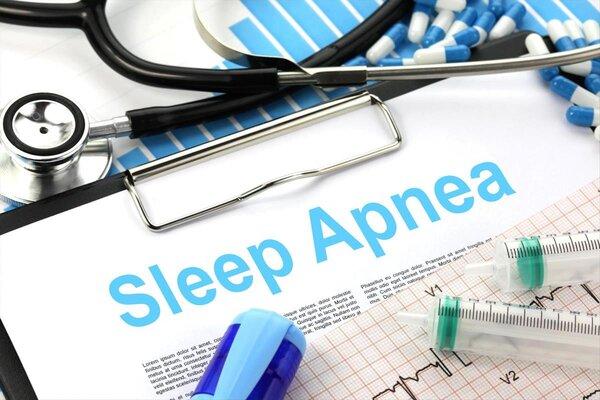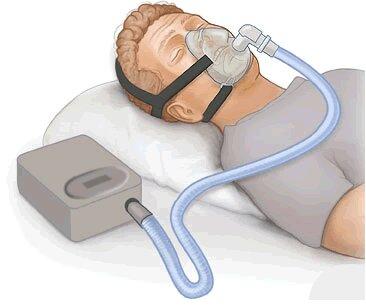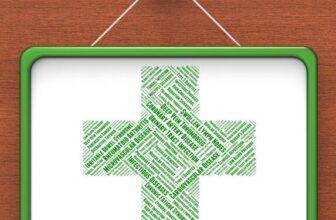Does Fixing Sleep Apnea Lower Blood Pressure?

(Note: Some of the links in this post are affiliate links, and we will be compensated when you make a purchase by clicking through our links at no additional cost to you.)
Can Fixing Sleep Apnea Really Lower Your Blood Pressure?
Are you struggling with high blood pressure? Have you been diagnosed with sleep apnea? If you answered “yes” to both of these questions, you may be wondering if there’s a connection between the two. Can fixing sleep apnea actually lower your blood pressure? In this comprehensive guide, we’ll explore the relationship between sleep apnea and blood pressure, the science behind it, and the steps you can take to improve both your sleep and cardiovascular health.
Understanding Sleep Apnea
Before we dive into the connection between sleep apnea and blood pressure, let’s start by understanding what sleep apnea is. Sleep apnea is a common sleep disorder that affects millions of people worldwide. It’s characterized by interruptions in breathing during sleep. These interruptions, known as apneas, can last for seconds to minutes and occur multiple times throughout the night.
There are two main types of sleep apnea:
- Obstructive Sleep Apnea (OSA): This is the most common form of sleep apnea. It occurs when the muscles in the back of your throat relax excessively, causing a blockage in your airway.
- Central Sleep Apnea: Unlike OSA, central sleep apnea is not caused by a physical obstruction in the airway. Instead, it occurs when your brain fails to signal your muscles to breathe.
Both types of sleep apnea can result in poor sleep quality and, if left untreated, can lead to various health problems, including high blood pressure.
The Connection Between Sleep Apnea and Blood Pressure
Numerous studies have highlighted a strong association between sleep apnea and high blood pressure (hypertension). While the exact mechanisms are still being studied, here’s how sleep apnea can contribute to elevated blood pressure:
1. Sympathetic Nervous System Activation
When you experience apneas during sleep, your body perceives it as a threat to your oxygen supply. In response, your sympathetic nervous system, also known as the “fight or flight” system, becomes activated. This leads to an increase in heart rate and blood pressure. Over time, the repeated activation of this system can contribute to chronic hypertension.
2. Inflammation
Sleep apnea has been linked to increased inflammation in the body. Chronic inflammation is a known risk factor for high blood pressure and cardiovascular disease. Inflammatory markers such as C-reactive protein (CRP) are often elevated in individuals with sleep apnea.
3. Endothelial Dysfunction
The inner lining of your blood vessels, called the endothelium, plays a crucial role in regulating blood pressure. Sleep apnea has been shown to impair endothelial function, making it harder for blood vessels to relax and dilate, which can lead to increased blood pressure.
4. Hormonal Changes
Sleep apnea can disrupt the normal secretion of hormones that regulate blood pressure, such as renin and aldosterone. These hormonal imbalances can contribute to hypertension.
Treating Sleep Apnea to Lower Blood Pressure
Now that we’ve established the connection between sleep apnea and high blood pressure, the next question is: Can treating sleep apnea help lower blood pressure? The answer is a resounding yes. Here are some effective strategies to manage sleep apnea and potentially reduce your blood pressure:
1. Continuous Positive Airway Pressure (CPAP) Therapy
CPAP therapy is the most common and effective treatment for obstructive sleep apnea. It involves wearing a mask over your nose and/or mouth while you sleep. The mask is connected to a machine that delivers a continuous stream of air, keeping your airway open. Studies have shown that CPAP therapy not only improves sleep quality but also helps lower blood pressure.

2. Lifestyle Modifications
In addition to CPAP therapy, making certain lifestyle changes can be beneficial for managing sleep apnea and reducing blood pressure:
- Weight Loss: Excess weight, especially around the neck, can contribute to airway obstruction. Losing weight through a combination of a healthy diet and regular exercise can alleviate this issue.
- Positional Therapy: Some individuals experience sleep apnea primarily when sleeping on their back. Sleeping on your side may help reduce the severity of apneas.
- Avoiding Alcohol and Sedatives: Alcohol and sedative medications can relax the muscles in your throat, making sleep apnea worse. Limiting or avoiding these substances, especially before bedtime, can be helpful.
3. Oral Appliances
Dental appliances, also known as mandibular advancement devices, can be used to treat mild to moderate obstructive sleep apnea. These devices reposition the lower jaw and tongue to keep the airway open. While they may not be as effective as CPAP, they can still improve sleep quality and potentially lower blood pressure.
4. Surgery
In some cases, surgical intervention may be necessary to address anatomical issues that contribute to sleep apnea. Surgical options include uvulopalatopharyngoplasty (UPPP), genioglossus advancement (GA), and maxillomandibular advancement (MMA). Surgery is typically considered when other treatments have been unsuccessful or when there are severe anatomical abnormalities.
Monitoring Your Progress
If you have sleep apnea and high blood pressure, it’s essential to monitor your progress regularly. Here are some steps you can take:
Regular Check-ups
Schedule regular check-ups with your healthcare provider to monitor your blood pressure and discuss your sleep apnea treatment. They can make adjustments to your treatment plan as needed.
Home Blood Pressure Monitoring
Consider investing in a home blood pressure monitor. Monitoring your blood pressure at home can help you track changes and provide valuable data to share with your healthcare provider.
>>> Read more: Discover the most accurate blood pressure monitor for home use. Click here.
Sleep Tracking Apps
There are numerous sleep tracking apps and devices available that can help you monitor your sleep patterns. These apps can provide insights into the quality of your sleep and whether your treatment is making a difference.
There is a strong link between sleep apnea and high blood pressure. Sleep apnea can contribute to hypertension through various mechanisms, including sympathetic nervous system activation, inflammation, endothelial dysfunction, and hormonal changes. Fortunately, treating sleep apnea can have a positive impact on blood pressure.
Feature Image: Sleep Apnea by Nick Youngson







